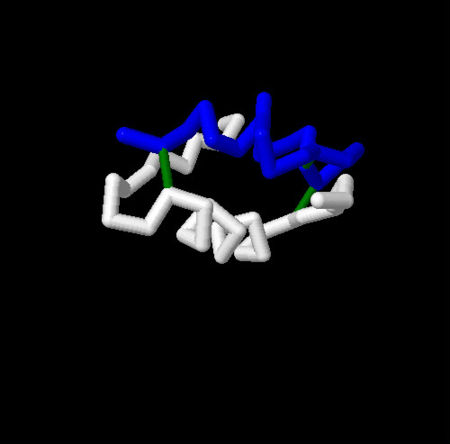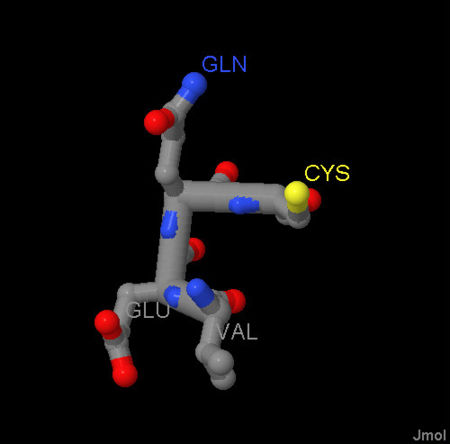We apologize for Proteopedia being slow to respond. For the past two years, a new implementation of Proteopedia has been being built. Soon, it will replace this 18-year old system. All existing content will be moved to the new system at a date that will be announced here.
Tedsandbox
From Proteopedia
(Difference between revisions)
| Line 54: | Line 54: | ||
<quiz display=simple> | <quiz display=simple> | ||
| - | { | ||
| - | |type="{}"} | ||
| - | Which amino acid can form disulfide bonds? | ||
| - | { cystine (i) } | ||
| - | |||
| - | |||
| - | |||
| - | |||
| - | {How many amino acids are in the picture? | ||
| - | |type="{}"} | ||
| - | { 4 _3 } | ||
| - | |||
{What amino acid is this? [[Image:glu.png|100px| ]] | {What amino acid is this? [[Image:glu.png|100px| ]] | ||
| Line 73: | Line 61: | ||
- glycine | - glycine | ||
- valine | - valine | ||
| + | |||
| + | { | ||
| + | |type="{}"} | ||
| + | Which amino acid can form disulfide bonds? | ||
| + | { cystine (i) } | ||
| + | |||
| + | |||
</quiz> | </quiz> | ||
Revision as of 11:48, 15 July 2009
I think a line at the top looks nice
|
Need more help?
Need more help?
Perhaps it was confusing because you are not used to seeing this protein as a dimer.
Last look.
Click on the disulfide bonds or the white alpha helix for more information.
Click on the amino acids for more information.



